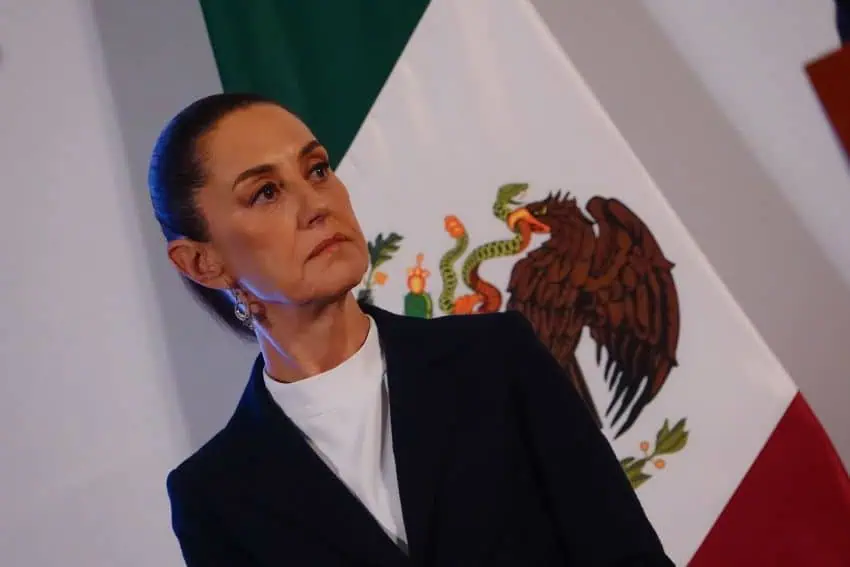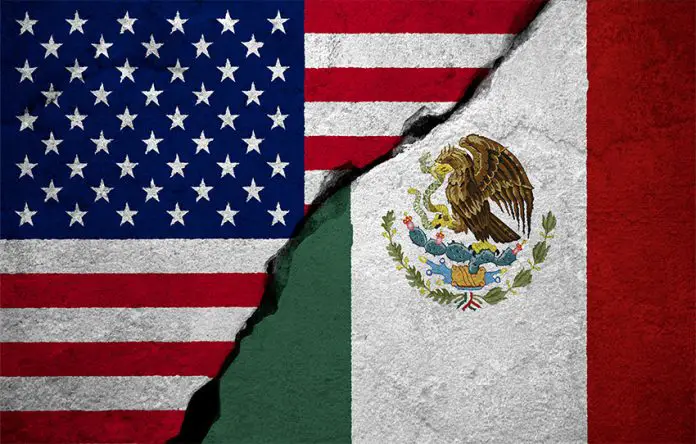With the US election just a few days away, anxiety is high on both sides of the American political aisle. Nobody seems to know who the winner will be, and the language from both sides in the US has been apocalyptic about what will happen if the other side wins. So I suppose it’s no surprise people feel the way they do.
Last week, the Wall Street Journal ran a story on how people were coping with pre-election stress. Several of the people interviewed referenced their favorite drug or alcoholic beverage to help them keep calm.
Here in Mexico, the stress is also high — perhaps even more so. Mexicans and residents in the country are dealing with a barrage of headlines about the new Mexican administration under President Sheinbaum (which began just a month ago). At the same time, they are trying to figure out what the new U.S. President might mean for their own country.
It’s important to remember that many Mexicans have family on both sides of the border and, as a result, are very impacted by U.S.-Mexico relations.
Is a ‘big move’ coming for the Mexican peso?
In the past several months, as per Banxico, the Mexican peso has weakened sharply and is now above 20 to the US dollar. Every day I read pundits predicting that it could soon go to 25. Despite the confidence of those making the predictions, I have yet to read any rational economic arguments for such a big move.
As we have witnessed, currencies often move irrationally in the short term, and a big Mexican peso move is definitely possible.

Further complicating a clear view of the future, there have been mixed messages coming from the Mexican government.
On one hand, key members of the Sheinbaum administration have moved quickly to send positive messages to investors. A visit to New York City by Mexico’s Finance Minister, Rogelio Ramírez de la O, as well as statements by Economy Minister Marcelo Ebrard of the importance of creating a favorable environment for foreign direct investment have been positive steps.
How do we make sense of all that is happening?
The administration’s recent U.S.-Mexico CEO Dialogue was also a positive first step. Sheinbaum’s team has been clear that they view increased cooperation and coordination with North America and reduced imports from elsewhere as a top priority.
On the other hand, Sheinbaum’s push to move forward on judicial reform continues to cause alarm. Despite concerns voiced by both domestic and foreign businesses and leaders, the administration has moved quickly, resulting in the tendering of resignations of eight of the 11 Supreme Court justices on the same day earlier this week.
A careful reading of the details of the resignations brings passionate arguments from each side as to the real motives — but it’s clear that such a move does not improve investor confidence, to say the least.
So how do we make sense of all that is happening? I’m often asked by people on both sides of the border which US presidential candidate I think would be best for Mexico. Unfortunately, I do not have a straightforward answer.
Former President Trump by far has had the most vocal comments about what he would do with tariffs with Mexico. As a result, many think he would be “bad for Mexico”. But the current USMCA agreement, which has undeniably been good for the country and allowed Mexico to steadily increase exports to the point of now being the No. 1 exporter to the United States, was signed during the Trump administration.
Ironically, Vice President Harris was one of only 11 Senators to vote against the agreement. If elected president, Trump would most certainly take a hard line on Mexico on many topics, but it appears he would likely take an even harder line on China, which could ultimately benefit Mexico.
Harris might not be as hard on tariffs on Mexico, but also might not be as hard on China. As much as I would like to provide a clear answer, it’s really not obvious yet which candidate would be better for Mexico. There are still too many unknowns.
Only a few days of high anxiety remain. Let’s pray for a clear winner and a clear path forward. That clarity will hopefully allow Mexico and the new U.S. administration to begin engaging on the many important issues and opportunities that the two countries face.
Travis Bembenek is the CEO of Mexico News Daily and has been living, working or playing in Mexico for over 27 years.
